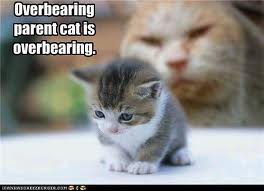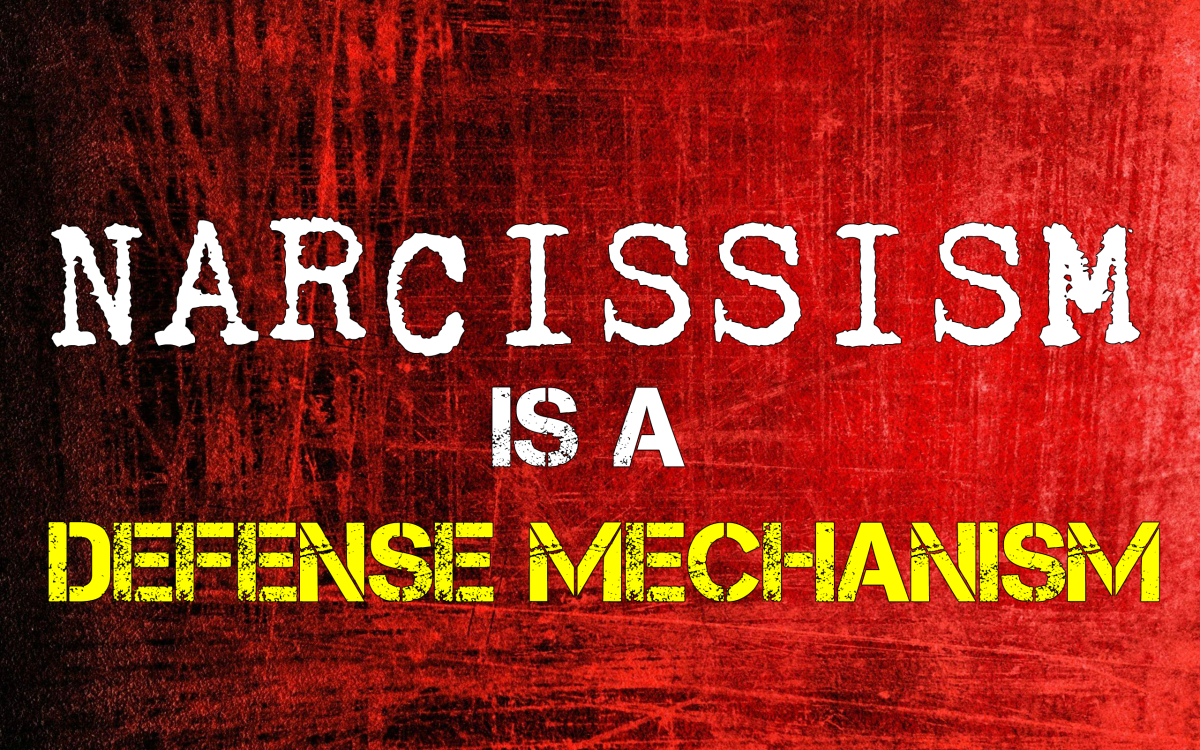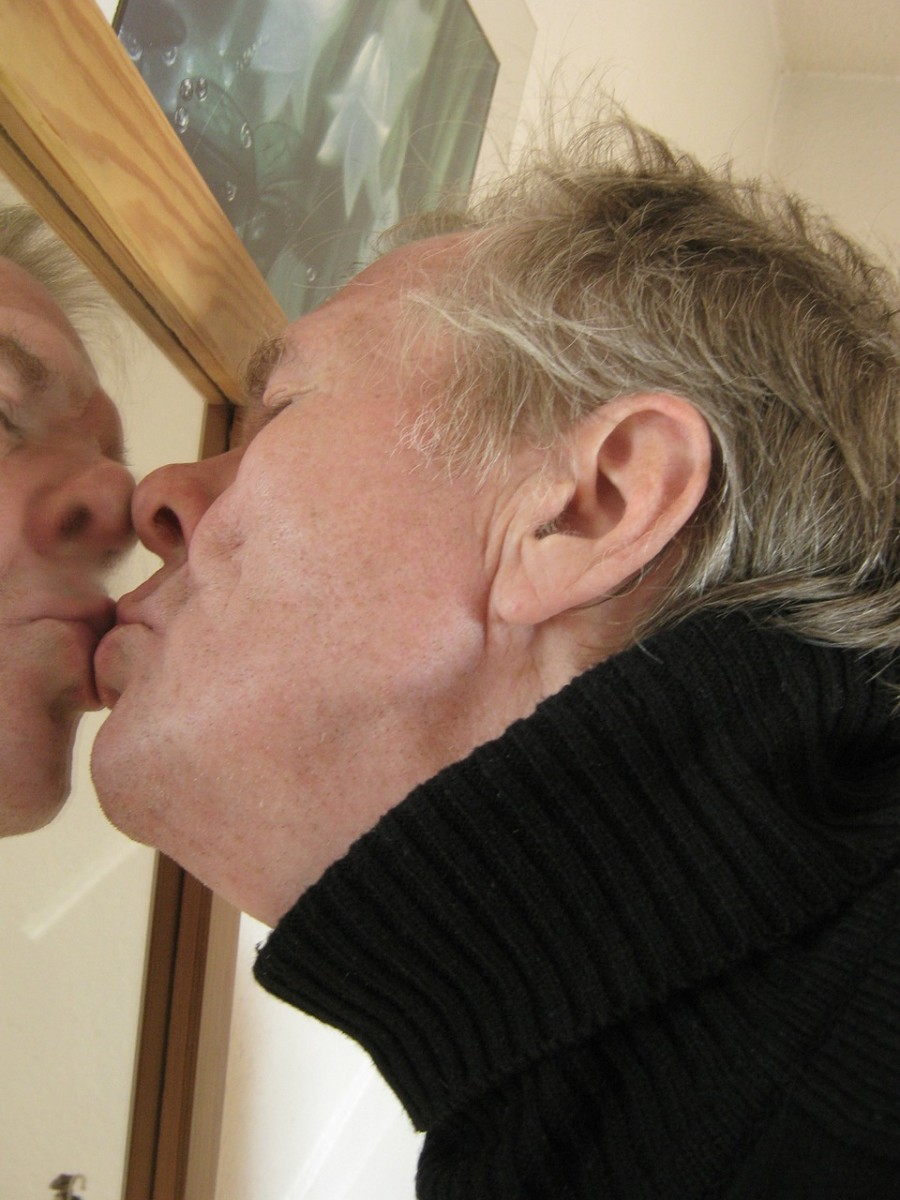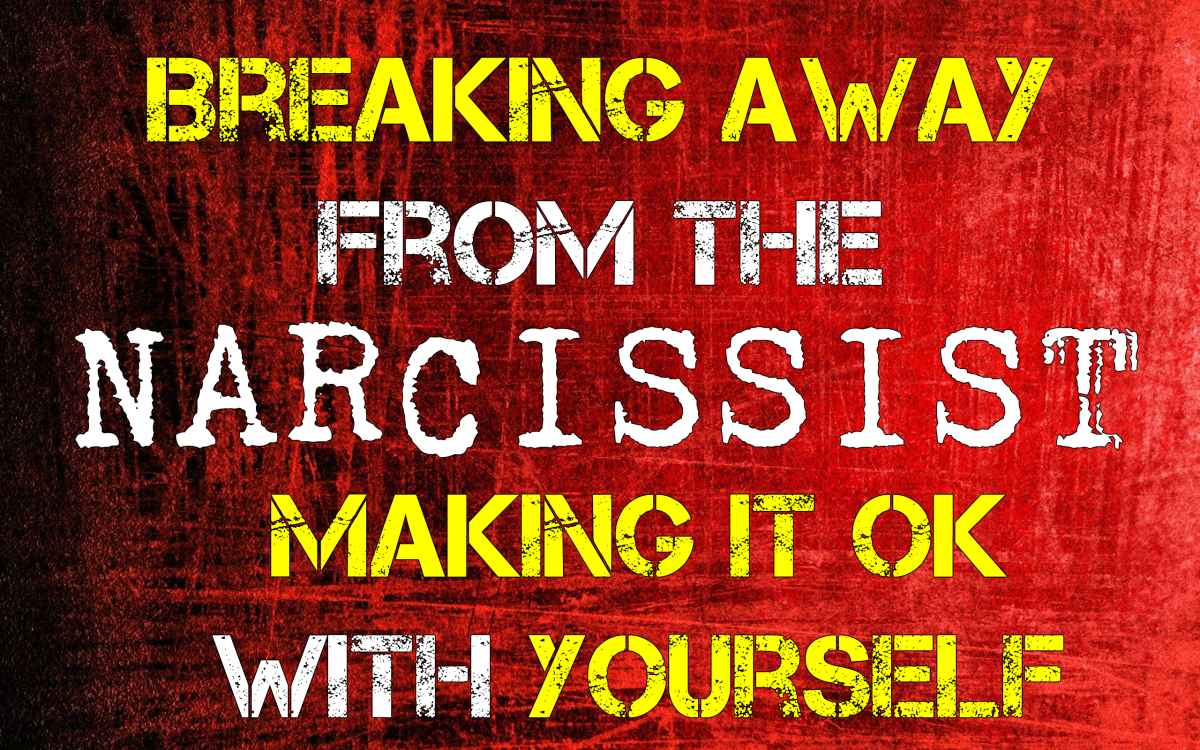- HubPages»
- Health»
- Mental Health»
- Personality Disorders
Dealing with Narcissistic Personality Disorder II











Where to go from here
Dealing with a Narcissistic Personality Disorder
I have received many comments and responses from people who want to know more about how to deal with these difficult behaviors. Keeping in mind that each situation is unique, these are some broad tips on how to manage situations with someone who has NPD.
The bad news about this is that these steps relate to you, the person dealing with someone who has NPD.
-
It's all about you !
The only way you have to alter a behavioral dynamic you don't like with someone is...you guessed it, to change your own behaviors - that's the way it works...you have to change first. While that may not seem, and quite honesty isn't fair to those of you out there who actually have to deal with this on a daily basis( I mean, isn't this supposed to help me deal with someone else's problematic interpersonal style?), this brings us to the next tip:
-
Taking the higher road
In dealing with someone with NPD, not only will you have to do most of the work, but you will have to come to terms with the fact that, if you want this to work, the effort needs to start with you and you have to be the big girl in 90% of situations. Which brings us to number 3:
-
Forget about fairness
Not fair? no, not at all, but the person with NPD is not generally bothered by their interactions because for them, their difficulties are someone else's fault. If you are waiting for things to be fair in a relationship with someone who has NPD, you may be waiting some time, and their definition of fair is probably not what you were thinking.
-
It's not personal
Sounds easy, until you're in the situation, but remembering that most powerstruggles etc are not as much about you as you think. In a personality disorder the person is stuck in a rigid way of thinking, behaving and dealing with interpersonal relations and is unable to adapt to the situation. Flexibility is one of the hallmarks of good mental health. The frustrating, selfish, hurtful and malicious behaviors you see often come from internal struggles, insecurities and defenses. Being able to realize this has the advantage of taking the sting out of many of those annoying, petty comments often meted out to those close to someone suffering from NPD.
5. Lower your expectations.
Really?! Well, look at it this way, have they met your expectations up to this point? No! Well, what is more likely to change, you or them (and my money's on you!). Just for right now, let's assume that these maddening behaviors are related to an injury. We don't have the same expectations for those who are injured, we make accommodations. So, what would happen if you decided "well this person is who they are, as frustrating as that maybe, and it seems they're not going anywhere or changing their behaviors anytime soon, so how can I minimize my own stress?
6. Don't keep being surprised
The hallmark of personality disorders is their chronicity and the global effect they have on people's lives. These people hate change, especially if it involves them. They have their working (or not working) model of relationships, which they set up to minimize their anxieties, so they really don't want anyone messing with the program. So, when these people do the same things they always do, that's a symptom of the disorder, not an attempt to hurt or frustrate you, which is often how it may feel.
7. Educate yourself
Being forewarned is to be forearmed, and never truer than in dealing with difficult behaviors. Read some of the literature, organizations such as NAMI and SAMHSA often provide training and literature designed to dealing with family members suffering from a mental health condition. Along with this they can often provide resources and support groups which can greatly reduce family member stress levels.
8. It's not much fun for them either
As counterintuitive as that may seem, most people whose lives are marked by a limited and conflictual interpersonal style such as NPD don't feel good about their behavior - that's why they feel such a need to project difficult emotions onto others and why they so frequently frame their experiences as victimization despite often outrageous behavior on their part
9. Emotional control and power
Who controls the emotion in a situation? So, What do I get ? Okay, so this sounds like a pretty raw deal so far, are there any advantages? Definitely, if you can keep the above 5 ideas in mind you are in a far better position to understand the following essential statement "he, or she who controls the emotions, controls the situation". Kids learn this round about age 2 where they discover that if they yell loudly, stamp their feet, roll on the floor and generally make a scene, that it has dramatic and powerful effects on adult behavior.
This may sound insignificant, but if you understand and integrate this key fact into your interactions with anybody, you are likely to be in a better position interpersonally. So, yes, you have to be the bigger person - why? because they don't know how. So here's where you have to suspend your judgments for a while and give people the benefit of the doubt, perhaps they really don't know how to act differently. I don't mean allowing yourself to be abused, I mean taking your ego out of the situation, losing your inner voice which tells you "what will people think" and doing what needs to be done. Tough work indeed, but the advantage is that you show the people you deal with, not only that you have control, but you provide them with new templates for dealing with experiences.
10. Developmental aspects
Narcissistic Personality Disorder is a developmental disorder. By which I mean it has it's origins in disrupted childhood experiences which leave the child with impaired coping skills and distorted interpersonal expectations and behaviors. These perceptions shape a person's thoughts, beliefs and actions. In other words, this is a skill deficit disorder, and the problem is not as much how to teach these skills, but that people's character becomes rigid and inflexible and it becomes more difficult to restructure beliefs, habits and perceptions as a person ages.
11. Anger makes you stupid
The other thing to keep in mind, is that anger makes you stupid. You cannot think when you are angry and most likely end up exacerbating a situation. So, basically, if you can learn to control your anger response, it's much less likely that you'll end up being drawn into the dramatic, frantic powerstruggles common in relationships with those who show NPD traits.
12. Emotional intelligence and defenses
Or the ability to have a good understanding of one's own and other's emotions and their impact on thoughts, beliefs and behaviors, coping skills, adaptability and frustration tolerance, as well as an internalized sense of social roles, expectations and mores is an essential part of positive and healthy interpersonal relationships and something those with NPD lack.
Many of the offputting and/or frustrating behaviors associated with this disorder stem from defensive reactions to the lack of emotional intelligence. Because they don't understand conventional social rules, people with NPD feel forced to create their own, which they constantly have to justify as it is idiosyncratic and often leads to misunderstandings. Their demand for attention and constant praise stems from an almost overwhelming fear that they are in fact weak, stupid and unlovable and that, at any moment they could be unmasked. This explains some of the intensity with which these people often react to anything construed as criticism, it literally strikes at the heart of their deepest fear, threatening to expose them as weak willed, damaged imposters.


Condoning vs Accommodating
Before I talk further about ways to deal with those with narcissistic behaviors I'd like to clarify and address several points which have been brought up in the comments and responses to the first part of this hub.
Many of you have pointed out that it hardly seems fair to have to put up with the behaviors of someone with NPD and that understanding of or empathy with this condition is tantamount to condoning the behaviors. I'd like to emphasize that I don't believe that understanding or trying to understand someone and/or their behaviors is the same as condoning it. Often understanding another's perspective leads to empathy for them, but understanding how someone may have come to behave in a certain way is not to say it is okay. When most of us encounter someone under the influence of alcohol, for example, we often understand their behaviors differently, we don't have to agree with the behaviors to understand that someone is drunk and making poor decisions, but it also doesn't serve us any better to give them a moralistic lecture because it's hardly likely to have an effect as their brain is processing things in a different way.
Another important point, frequently raised is how to tell whether someone has NPD. Firstly, a diagnosis like this should only be made by a qualified mental health professional, your general practitioner is not going to cut it, and should be based on an in depth interview, collateral confirmation and possibly psychological testing.




Tell us what you think...
Was this information helpful to you
The "No Contact Rule" - Isolate or Accommodate?
Many people write about the difficulty of being involved with someone who shows narcissistic traits, and although they are able to see and feel the damage from many of these interactions, it is simply not feasible to greatly reduce contact - as many of these people are our family members, simply put, we face the isolate or accommodate scenario.
And, like most things in life it is rarely that simple.
It is always more difficult when a child is involved and one of the parent's is potentially damaging emotionally - and children will always want their parents, no matter how abusive (which is partly why it is so very damaging, you can't break away). If you genuinely believe that the behavior is causing emotional damage, you can call child protective services or you can request a welfare check from your local police department.
One of the things we learn growing up is that our parents are not perfect and, as tough as that is to learn, each child has to discover that for themselves, as part of the developmental process. Having said that, it's pretty hard to watch someone you care for throw themselves under the truck (yet again). Again, I am absolutely not advocating that the child remain in a situation which is actively abusive, and they should know that they can always call you if things get tough, if no contact is not an option, accommodation is the next best strategy.
If someone in a wheelchair knocks something over, we are generally pretty nice about it, well people with these types of difficulties are walking around the world on crutches, swinging them about - we just can't see them until they wallop us upside the head...again. - and yes, over and over again we have to accommodate them if we want to, or have to continue the relationship. - and modeling these skills may be really helpful for the child with an obnoxious boss one day.
Being in a secondary role, such as a stepparent is a particularly difficult role where you either support the child in their efforts to connect with the other parent and minimizing the damage wherever possible, without either bad mouthing the other parent or saying "I told you so" when it happens again as you knew it would.
Keeping a positive and open relationship with the child, so that they feel free to confide in you without judgment and modeling for them what you would like them to see in the other parent are the most important ways of supporting the child. This is their parent and they will have to figure out some way to interact with them over a long period of time. What you can do is encourage them to set clear boundaries, model how to communicate effectively, spend time with them and show them that you admire them, respect them and trust their decisions and that you'll support them in whatever decisions they make (even if they are not what you would chose). This way the child still receives regular nurturance that they may be missing elsewhere and you minimize the negative impact on their self esteem. Kids (and not just kids) learn far more from what you do that what you say and right now, you are modeling for them how to continue to have a relationship with someone even though they may be difficult (as family members often are), and/or you are no longer romantically involved with them - and that is as big a life lesson as any. Few of us have the ability to maintain a positive connection with someone once the relationship is over, but with many people we might be better for it if we did.
I realize that it seems that these things require you to put in the effort and they do, mostly because the only person's behavior we can really control is own own, and the only way to influence and shift someone else's behaviors is to change your own interactions - as unfair as that may seems - that really is how it works. By modeling positive skills you both counteract some of the negativity and provide an alternate world view, which helps to build resiliency, further minimizing the emotional damage. Creating the milieu for a different experience for the child and doing all that groundwork lays the base for change











